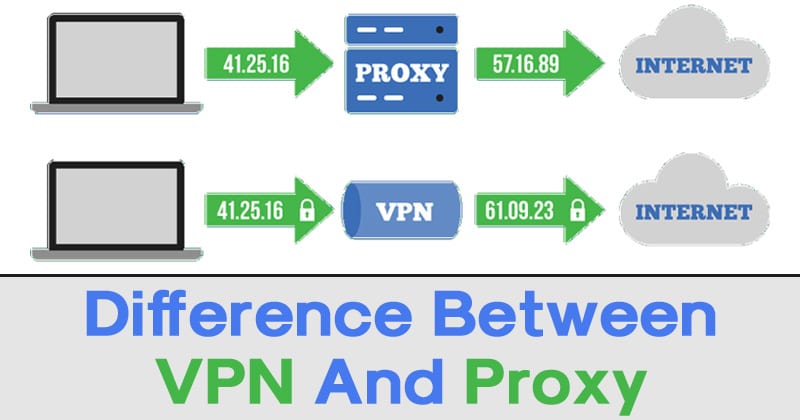In today’s online era, online safety and security have never been this crucial. While we journey through the expansive landscape of the web, the possibility of exposing personal information has escalated dramatically. One of the best tools in protecting your digital presence is a proxy server system. But what exactly is a proxy, and how does it function? Understanding the role of proxy servers can empower you to make smart decisions about your online activities and boost your digital security.
Proxy servers function as middlemen between your device and the web, allowing you to access websites and services while masking your internet protocol address. This not just helps protect your privacy but also offers various benefits, such as improved safety, overcoming geographic limitations, and even boosting online productivity. In this article, we will examine the intricate workings of proxy, compare them with other privacy tools like VPNs, and discuss their advantages and potential drawbacks. Whether you're an individual seeking online anonymity or a company looking to bolster security measures, understanding proxy is crucial in maneuvering through the challenges of the online world.
Understanding Proxy Servers
A intermediary server acts as an intermediary between your device and the web. When you access a website through a proxy server, your requests are sent to the intermediary first, which then transmits them to the destination. This process helps conceal your IP address, making it appear as though the intermediary's internet protocol is the one visiting the site. As a result, users can keep a level of anonymity online while navigating various web resources.
Proxies come in various types, each fulfilling unique purposes. For case, HTTP proxies are mainly used for web traffic, while SOCKS proxies can handle any kind of data flow, including FTP and peer-to-peer. Transparent proxies do not change queries and are commonly used in corporate networks to monitor employee activity without necessitating user configuration. Understanding these categories enables users to choose the best intermediary for their specific demands, whether it's for protection, safety, or performance.
The use of proxy servers is not just confined to single users. Many companies employ proxies to enhance their online security measures, increase staff productivity, and collect data insights. For instance, businesses may use proxy servers to access data protected from various places while also protecting their identity. As the digital landscape changes, understanding how proxy servers work is crucial for both individuals and businesses looking to deal with online challenges effectively.
Advantages and Security of Proxy Servers

Utilizing a proxy server provides several benefits that improve online privacy and security. By acting as an middleman between your device and the internet, proxies can mask your IP address, making it harder for websites to track your online behaviors. This secrecy helps safeguard your personal information from potential threats, especially when browsing on public Wi-Fi networks. With a proxy, sensitive data remains hidden, reducing the threat of identity theft and cyberattacks.
In additionall, to improving privacy, proxy servers play a crucial role in protection. They can monitor incoming and outgoing traffic, filtering malicious content and preventing harmful sites. Many organizations utilize proxy servers as an added layer of defense against cybersecurity threats. By examining web traffic, businesses can detect unusual patterns that may indicate a breach, allowing them to act swiftly to protect sensitive information.
Moreover, many proxies come furnished with features such as encryption, which enhances security even more. While not all proxies provide the same level of protection, those that do can encrypt data sent between the user and the server, improving security during data transfers. This is particularly important when retrieving sensitive information or conducting transactions online, as it ensures that your data remains confidential and protected from prying eyes.
Applying Proxy Servers for Streaming and Online Gaming
Streaming services frequently impose geo-based restrictions which may hinder users from accessing certain collections of content. Employing a proxy server can assist in bypassing these geographical barriers, allowing you to view a wider array of shows and films. By redirecting your traffic through a server located in a distinct country, you can present yourself as though you are accessing content from that region, enabling access to content that might otherwise be unavailable in your area. This feature is particularly beneficial for those looking to enjoy services like Netflix or Hulu that have varying availability based on location-based locations.
In conjunction to improving your streaming experience, proxies can also considerably benefit gamers. Numerous web-based games restrict access based on IP location and can ban users for multiple reasons. By utilizing a proxy server, players can hide their actual IP addresses and reduce the risk of being banned while taking part in online gaming. Furthermore, proxies can help reduce latency and improve connection stability by connecting you to the gaming servers more efficiently, providing a smoother gaming experience.
Nevertheless, not all proxies are created equal, especially regarding streaming and gaming. It's crucial to choose reliable and fast proxy servers to avoid laggy connections and potential interruptions. Many gamers and streamers opt for specialized proxies or those especially designed for high bandwidth activities, guaranteeing peak performance during critical gaming sessions or while watching in bulk favorite shows. https://buyproxy.omeka.net/ can help maintain not just access to content but also the overall quality of the service.
